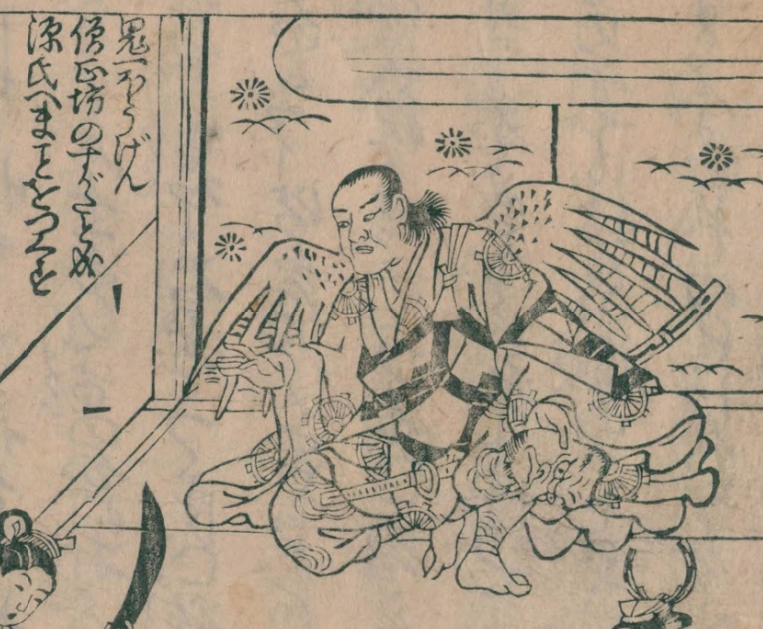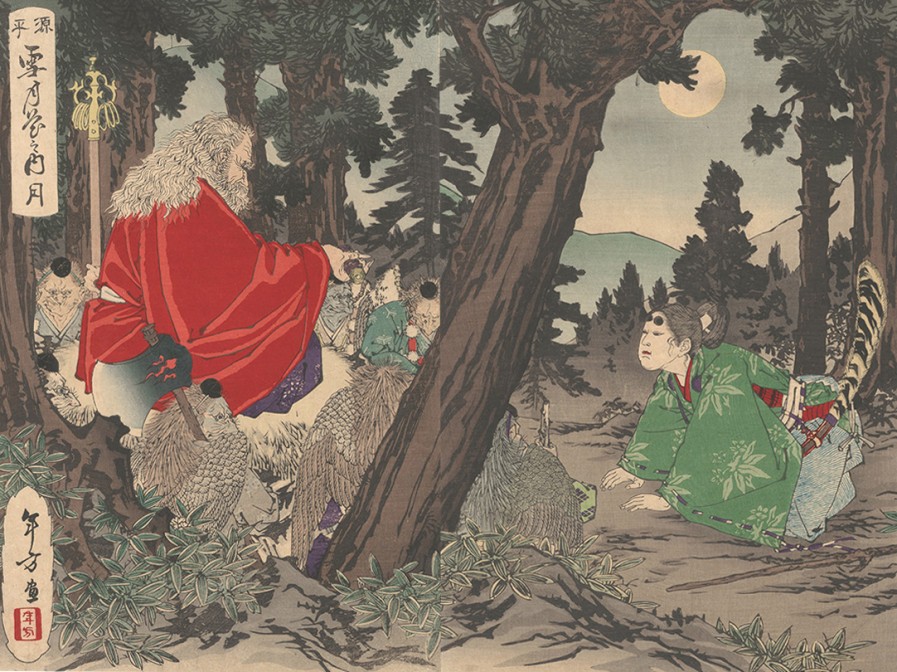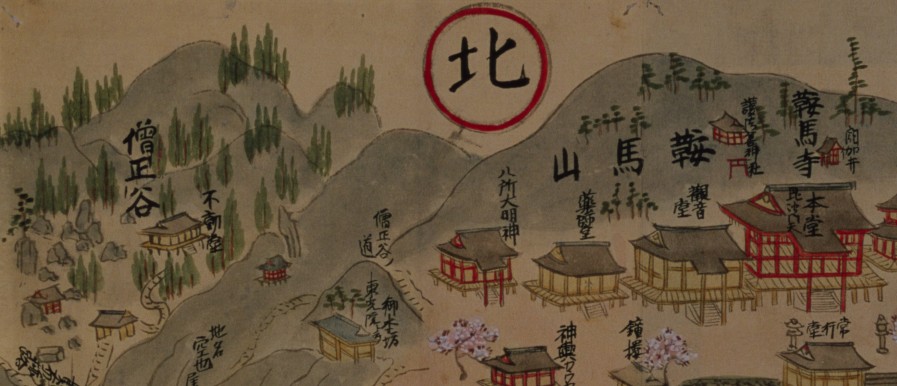
Yoshitsune's military poems (義経軍歌) can be seen as a summary of military science learned from the great Tengu Sōjōbō (大天狗僧正坊) and Onmyodō expert Kiichi Hōgan (陰陽師鬼一法眼). During Ushiwakamaru's (牛若丸) enforced stay at Kurama Temple (鞍馬寺), he would escape at night to the neighboring Sōjōgatani Valley (僧正谷) to learn swordsmanship from the great Kurama Tengu (鞍馬天狗) and through Kiichi Hōgan gained access to a certain secret document on military strategy. Although it is also said that actually the Great Kurama Tengu and Kiichi Hōgan was the same person, therefore all of Ushiwakamaru's training would come from the same source, and he would be one of the eight monks who studied under Kiichi Hōgan and gave birth to the eight styles of Kurama (鞍馬八流).

Kiichi Hōgan using the art of disguise (変装術) to characterize himself as Tengu
Heihō Hijutsu Ikkansho (兵法秘術一巻書), Chō Ryō Tora no Maki (張良虎之巻), Kiichi Hōgan Tora no Maki (鬼一法眼虎之巻), San Ryaku Rikutō (三略六韜), Ryūko Nikan (龍虎二巻) are some of the names given to the transmission received by Ushiwakamaru, later known as Minamoto Kurō Yoshitsune (源九郎義経), the great Hero of the Genpei Wars (源平戦い).

Ushiwakamaru receiving in Makimono format the teachings of the great Tengu Sōjōbō accompanied by his inferior Tengu crows (烏天狗). Also portraying the legend of the Tobi Ichizoku (鳶一族) group led by Tobi Hōshi (鳶法師)
Among the themes covered in Yoshitune's one hundred military poems (義経軍歌百首) we find attack is warriors (武者押), establishing and conquering camps (陣取), scouting (斥候), battles (合戦), castle siege (城攻), generals' strategies, astrology (星占), divination by cloud-watching (雲気), use of sound signals (貝, 太鼓), etc. A complete catalog of military strategies summarized in 100 concrete and concise poems similar to those of one of his trusted men, Ise Saburō Yoshimori, expert in Shinobi techniques and creator of the Hundred Shinobi Poems (義盛忍歌百首). Highlighting the strong resemblance between these two poems:
大風や大雨の降時にこそ夜討・夜賭は入ることそきく
In times of heavy rain and strong wind is when you should be skillful and take advantage of night attacks
(Minamoto Yoshitsune)
大風や大雨のふる時をこそしのびようちのたよりとはすれ
In times of heavy rain and strong wind is when you must rely on sneaky night attacks (Ise Saburō Yoshimori)
Interestingly, Yoshitsune's poem appears in the Bansenshūkai (萬川集海), but perhaps, with some shinobi influence from Yoshimori?
義経軍歌ニ
大風ヤ大雨シケキ時ニコソ、夜討忍ハ入者ソカシ
Who inspired whom? According to certain legends, Yoshitsune was instructed by Kiichi Hōgan and Yoshimori by Tozawa Hakūnsai (戸沢白雲斎), two similar warriors instructed by two similar mystical characters who had a strong influence on the origins of Happō Hiken Jutsu (八法秘剣術) and the development of the Gyōkko Ryū (玉虎流) school in the Heian period.

Kurama Temple and to its left its neighboring Sōjōgatani Valley where Yoshitsune received training
May 30th, 2024, Ensanryū 鳶山龍
Bibliography:
日本古典偽書叢刊, author: 深沢徹, year 2004.
忍者の系譜, author:杜山悠, year 1972.
新編伊賀地誌, author 中野銀郎, year 1939.
忍法大全, author: 初見良昭, year 2013.
萬川集海, author: 中島篤巳, year 2015.
義経御詠歌百首, year 1820.



